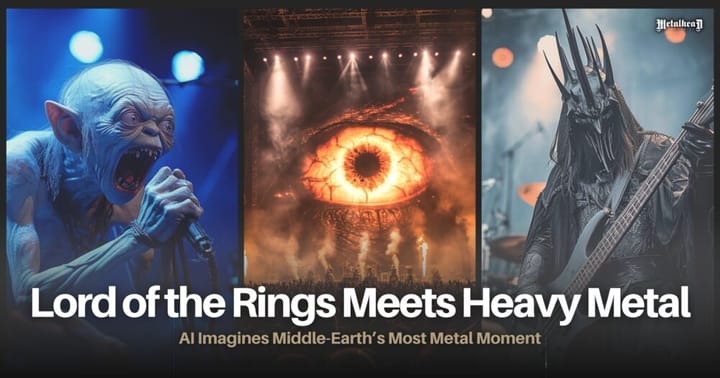Godfather of Death Metal Chuck Schuldiner - His Legacy, Illness, and Final Years
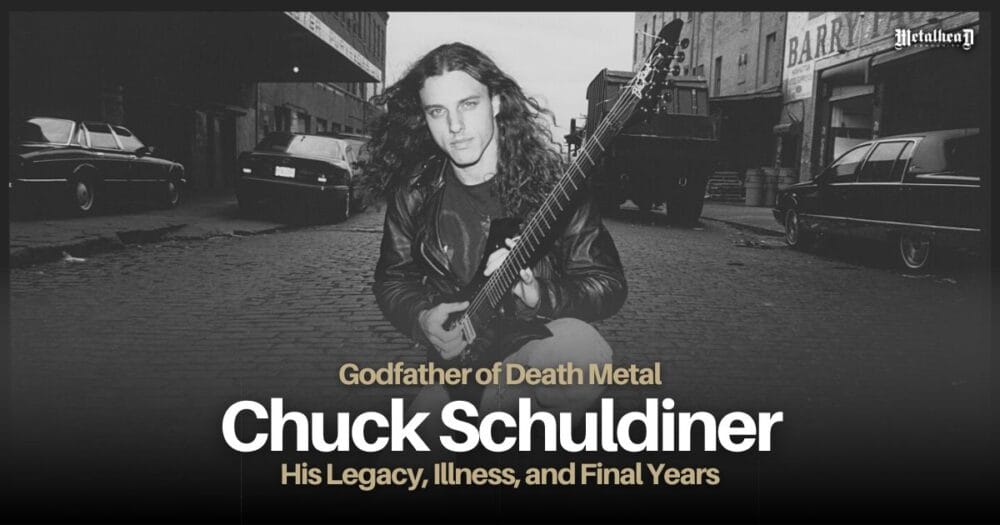
He did not have the most docile personality or the easiest genius to carry, precisely because of his constant search for musical perfection. He was one of the most prolific composers of metal and an innovator within it. Charles Michael Schuldiner, better known as 'Chuck', was – like the band Possessed – one of the heroes of death metal, creator of hundreds of melodies that gave life to this subgenre and later broke with the schemes of it, taking it to a more technical and elaborate path, although a little lonely.
Originally from Long Island, New York, Chuck was a boy who faced a tough childhood after losing his older brother in a car accident. That happened when he, at the time, the future leader of the Death band, was only nine years old. Of course, this incident marked the beginning of his closeness to music since it was during this period that his parents gave him his first guitar to help him channel the impact of the tragedy.
Six years later, after spending much of his time practicing and taking an interest in bands like Iron Maiden, Judas Priest, and Venom, an already perfectionist but teenage Chuck began looking for musicians to have his own musical project, a task that would not be easy for a personality that demanded 200%.
At the end of 1983, he founded Mantas with drummer Kam Lee and guitarist Rick Rozz, his first band, which despite lasting only four months, was the previous step in creating Death. Precisely the dissolution of Mantas was due to a factor that would be common in Schuldiner's life, the search for commitment and seriousness in musical work, and years later, the search for the ideal sound. A factor that also brought him many enemies and, as he called them, bad press.
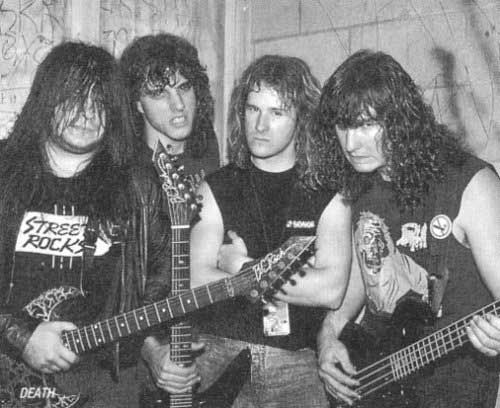
The First Try
In 1984, Schuldiner took the step and began to compose songs for Death, although due to problems finding other musicians, he had to turn to Lee and Rozz as companions on this musical path. Between '84 and '85, demos 'Death by Metal', 'Reign of Terror', 'Infernal Death', 'Back from the Dead', and 'Mutilation' were released, which opened the way for Death to sign with Combat Records, the same label that at that time housed bands like Megadeth and Possessed.
Already at the end of '85, Chuck returned to California, leaving his bandmates behind and starting the route to achieve his goal under the wing of a record company.

Path to Perfection
The consolidated history of Death begins with 'Scream Bloody Gore' (1987), a quite hard and forceful album in which Schuldiner recorded practically all the instruments, where he only had the help of his friend Chris Reifert on drums. This work shows the first glimpses of Chuck's future death metal, with sounds similar to thrash but much more violent, carefully crafted, which was not very common at that time.
Later, in 1988, 'Leprosy' was released, which marks a brief but unwanted return of Rick Rozz and also features the percussions of Bill Andrews. Schuldiner's evolution was rapid and clear, and this album is an example of this, as it resulted in a much more elaborate work than its predecessor.
'Spiritual Healing' from 1990 marks one of the first changes in Chuck's mindset as he leaves out the letters gore and is more interested in the human side of life.
In some interviews, he admitted that he addressed the gore theme because of his immaturity. But later, he said that "the topics of daily life are more brutal than writing about demons ripping a person's heart out. It was the reality that really made people identify and relate themselves to the music," which led to a radical change in their lyrics.
Regarding the instrumental part, the sound of Death was already consolidated, with heavy and complex guitars that would be accompanied by powerful percussion. From here onwards, everything went up for the "Death sound," with albums like "Human" (1991), "Individual Thought Patterns" (1993), "Symbolic" (1995), and "The Sound of Perseverance" (1998). These albums showcased Chuck's musical maturity, particularly in songs like "Lack Of Comprehension," "The Philosopher," "Crystal Mountain," "Spirit Crusher," and "To Forgive Is To Suffer."
The evolution reached a point where Chuck's roots in jazz and progressive rock reflected in the creations of the last decade of the band. This period saw collaborations with great musicians such as Steve DiGiorgio (Sadus, Testament), Gene Hoglan (Testament, Strapping Young Lad), Paul Masvidal (Cynic, For Spoke), Andy La Rocque (King Diamond), and Ralph Santolla, among many others.
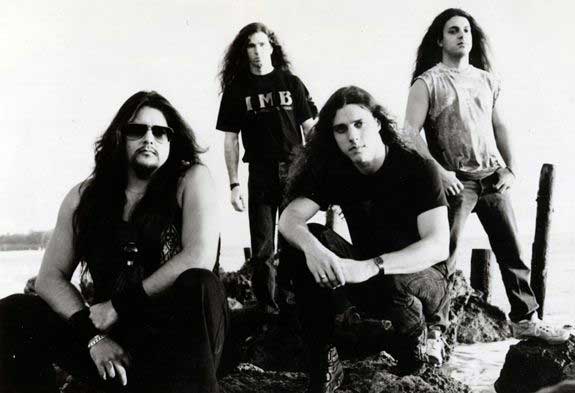
Challenges with the Band's Lineup
More than 20 musicians went through Death, including studio musicians and official members, and only Chris Reifert was spared from being labeled as an issue by Chuck. This wasn't because he truly suffered from a complex egomaniac, as accused by the first members of Death, but rather due to the problems caused by other band members during their time in the group. Mainly, Chuck, as the vocalist and composer of the band, was against drugs and based his work solely on musical professionalism.
In His Words
"I can't deal with people who are going to stop us from improving. I like it when a band maintains its lineup, but as long as they maintain the same sound, that's what interests me, that's how good music is made. Regardless of the rest, Death has always been faithful to its sound, and that is what matters," Chuck Schuldiner said in a 1991 interview with Metal Mania as they prepared to release their album "Human."
It was also during this period that Chuck Schuldiner faced criticism from all sides due to the constant changes in the band's lineup, which from 1991 onwards would only work with session musicians. The album "Human" was conceived as a response to all the criticisms, aiming to prove that the decisions made by Schuldiner were not whimsical but rather aimed at seeking a better future. "We can all make mistakes, and unfortunately, when it happens to us, the public looks at us with contempt. I have made mistakes. I have had to do things that do not make sense to people. But instead of assuming that I am an idiot for doing them, they should think that I have my reasons," he stated in 1991, explaining that he sought to clarify the misunderstandings and rumors that painted him as an egomaniac before the fans of that time.
Schuldiner was a perfectionist and always made it clear that the name "Death" was simply a name for the band that suited the violence of the music, but did not imply something more obscure or macabre, much less anything related to Satanism. True, his music was violent, and he intended it to be so. But his personality was not consistent with the violence of his riffs. For the same reason, he always declared himself a lover of life, animals, and, obviously, beer.
"I am a person with a very positive outlook towards life, friendship, and love," he said in a 1991 interview on MTV. Chuck emphasized this because he wanted to be understood, not just as a matter of personal self-defense, but also to change the paradigm of how metal music was perceived in general.
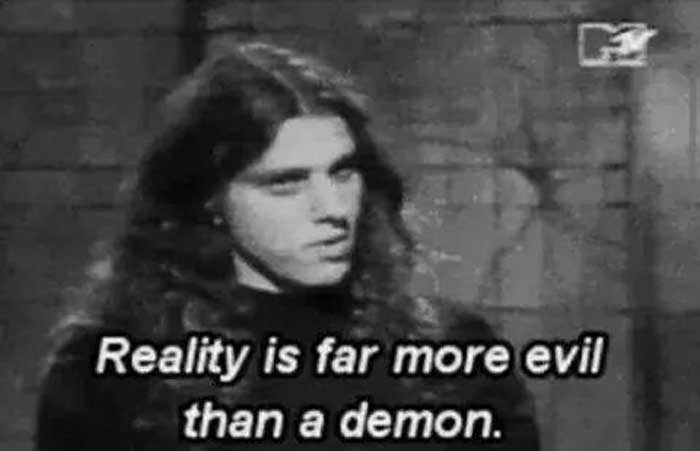
Illness and Final Years
Chuck Schuldiner was not only involved in Death, but he also released the album 'The Fragile Art of Existence' with his side project Control Denied. He joined the Voodoo Cult supergroup alongside Dave Lombardo (Slayer) and Mille Petrozza (Kreator). His visit to Chile in 1998 left an indelible mark on the memory of death metal fans.
Despite being a prolific musician with a promising future, everything changed on his 32nd birthday in May 1999. After experiencing persistent headaches, tests revealed that Chuck had brain cancer requiring immediate treatment. His courageous battle began, as he refused to give up. After nearly a year of chemotherapy, he underwent a tumor removal operation. While his recovery was initially announced by the end of 1999, the joy was short-lived. In May 2001, Chuck's family received the devastating news that the original diagnosis was incorrect, and the cancer had returned.
Chuck had been a good student but dropped out of school at an early age, lacking a degree, profession, or health insurance. The expensive treatment and subsequent operation pushed his family into bankruptcy. To raise funds, his family and Nuclear Blast, his record label, released two emotional DVDs: 'Live in L.A. (Death & Raw)' (1998) and 'Live in Eindhoven '98' (2001).
The metal community rallied to support him, with former bandmates and session musicians such as Gene Hoglan, Paul MasVidal, Steve DiGiorgio, Richard Christy, and Shannon Hamm joining the cause. Despite organizing events and donations, their efforts proved futile. Weakened by an experimental drug received during fundraising, Chuck developed pneumonia, leading to his untimely demise on December 13, 2001, at the age of 34.
Legacy
The untimely departure of Chuck Schuldiner leaves us devastated, but his impact on music is immeasurable. This American musician, who would have turned 53 in 2020, tragically succumbed to brain cancer at the age of 34 in 2001. Despite his premature departure, his career had already undergone an incredible evolution, envisioning a brighter future. His swift and precise musical progression revolutionized metal and expanded its boundaries in the late '90s.
From "Scream Bloody Gore" (1987) to "The Sound of Perseverance" (1998), Chuck's significance in the metal realm is profound. His genius lay not only in musical growth and the implementation of new techniques but also in infusing jazz and progressive elements into heavy, dark, and malevolent metal. Albums like "Spiritual Healing" delved into philosophical themes beyond the gore and blood, challenging societal issues such as drug abuse, abortion, genetics, and false TV preachers.
With the landmark album "Human," Chuck solidified Death's place in death metal history. His emphasis on the human side set him apart from the archetypal metal icon, particularly in the conservative society of the Reagan era, marked by the infamous "Witch Hunt" against metal lyrics led by Tipper Gore. In interviews, he passionately defended his music and the judgment imposed upon it, including the controversial band name.
Chuck emphasized that "Death" was merely a name to describe extreme music, and his personal vision embodied positivity, life, friendship, and love. His unwavering determination and refusal to give up in the face of adversity exemplify his strength. Chuck's influence extends far beyond metal, with his contributions marking a significant chapter in music history. He paved the way for a generation of musicians who continue to follow in his footsteps, carrying his talent and humanity. Chuck Schuldiner, the godfather of death metal, forever immortalized in our hearts.
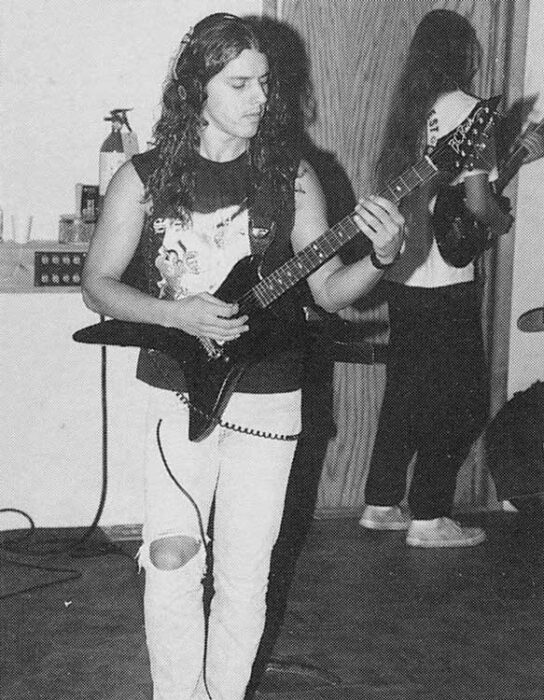
In closing, we pay tribute to the indelible legacy of Chuck Schuldiner, a true icon whose profound impact on the world of metal reverberates to this day. His unwavering dedication to his craft, his fans, and the relentless pursuit of musical excellence is etched into the very fabric of metal history. As we celebrate his life, let us immerse ourselves in the sonic universe he created, exploring the vast discography of Death and the breathtaking compositions that have inspired generations. Join us in honoring the godfather of death metal by delving into his masterpieces, and immersing yourself in the powerful artistry that continues to captivate and inspire. The spirit of Chuck Schuldiner lives on, forever resonating within the hearts of metal enthusiasts worldwide.
Post Image Credit; photograph by Catherine McGann/Getty Images
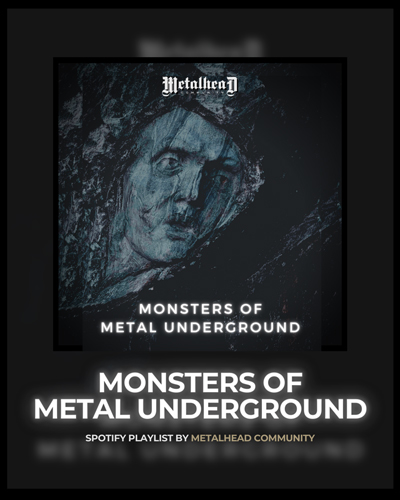
Listen to Metalhead Community's Monsters of Metal Underground playlist on Spotify


